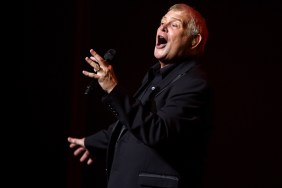“We avoid using the word moist,” Augie March bassist Edmondo Ammendola corrects me as we discuss the Shepparton born band’s latest album ‘Watch Me Disappear’. “Actually that is pretty good, how about damp, rising damp,” he concedes.
We began talking about the album’s perceived wetness in relation to it having been recorded in Neil Finn’s studio in Auckland. “I’ve got to say, I had no idea how damp Auckland was. Now Auckland, I think is on the same latitude as Melbourne or lower, but it’s so much damper. I guess I didn’t do my research enough on the climatic conditions.”
“All my bass guitars started behaving in very strange ways when I got over there because they’re all made of timbers of different densities. They all started playing up and bending around and I had to sort of readjust everything. I hadn’t counted on that, I counted on getting away from Melbourne, to focus on the album, but the climatic conditions…” he sighs in recollection of hours spent toiling over his instruments.
“But mind you, if I had gone to my band mates and said ‘look guys we can’t go to Auckland, it’s really quite damp and we’re going to make a very moist album,’ I think they would’ve just dismissed me as that raving lunatic again.”
“I know it sounds funny, but the damp definitely has an effect on the album. Three of the guys in the band come from possibly the driest and most depressing town in Victoria, which is Shepparton, and I dare say it’s very dry there. Something about the way the music is formed in a dry climate, I would say that Augie March’s music is very dry.”
Ignoring this blatant contradiction, mainly because their music does sound very dry and I had mistakenly brought up moistness in the first place, I decide to press on about the recording process and what it was like working with legendary producer Joe Chiccarelli, of Beck, Elton John and U2 fame.
“We had a hard time warming the room up, and I mean that both physically and metaphorically, and I say that in all honesty, Joe had a hard time warming the room up. So if the record sounds moist or a little undercooked, it is no surprise to me.”
Edmondo speaks with a weary wit, a tired tongue that yearns to spit forth quips amidst the discussion. He often laughs before taking a sombre tone, and it is difficult to tell whether he is having me on or feeling generally frustrated. “Working With Joe was a challenge I have to say, everyone has different ideas about music you see, and just from a technical point of view, maybe what syncopation means on the other side of the pacific means something else on this side of the pacific,” he says in a voice both sarcastic and serious.
‘Watch Me Disappear’ also saw the band take a new direction in how the album was written, with singer Glenn Richards having to write a lot of the album on the road, which he argued minimised the band’s opportunities to be creative and the band doing three weeks of pre-production for the first time before recording.
“I guess the way the music comes about these days in the band is very, very, very different than how it used to come from being around Sunset Studios, and The Waltz EP,” he tells me in a tone of weariness, “and with Strange Bird we saw the end of an era and the heralding of a new era of Augie March. It’s kind of garnered us a lot more success in the public eye, but it’s a very different way of putting music together and I guess you reap what you sow, and what we have now is a very different record.”
“I know it’s going to be a polarising album,” he continues, “because I know that people who are very familiar with our early work probably won’t like it. A band makes these decisions in a kind of vacuum in some way, but I guess if the song comes about more fully formed before recording than less fully formed as is the case with the first few albums, there is less of a chance for random musical events.”
“I think on this album there was one song it happened to, in the way it would happen on most songs back in the day, and that was Dog Day. Dog Day is probably one of my favourite songs on this album and the way it was executed was probably one of my favourite executions.”
“I used to record our rehearsals, and we used to just mess around with music, and I guess play around, play off each other, with what we were doing musically, and there’s less and less of that these days, and with Dog Day I think it was the last of it. So things have changed, but whether it’s good or not, I really don’t know.”












